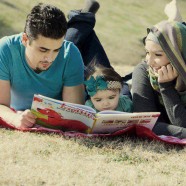
There is no doubt that Islam places great importance on families and living with them in love, patience and harmony. The rights of the parents, especially, are stressed about in the Quran with Allah saying that sons and daughters should not even say “uff” to the parents and respect them for as long as they live. With such significance placed on families, a question that often gets a lot of attention is the relationship one should share with families who are not blood related. These ofcourse, are the families that come into being after a couple gets married, more commonly known as in-laws.
This brings us to the topic of joint families. When a man marries a woman in Islam and brings her to his house where his parents reside, there are many factors that need to be taken care of. Most of these factors pertain to the women who are required to maintain hijab in front of her in-laws and the other male people in the house (barring the Father-in-law) like the husband’s brother, male servants etc
It has been reported by Uqbah Ibn Aamir that the Messenger of Allah (PBUH) said: “Beware of entering upon women.” A man from among the Ansar said: “O Messenger of Allah, what about the brother-in-law?” He said: “The brother-in-law is death.” (Bukhari and Muslim)
Note that the Holy Prophet (PBUH) used the word “death” which is the strongest, most powerful word that could be used to describe the inappropriateness of an act. Yet we fail to see the connotation of this word. When the Holy Prophet says “death” he means that it is highly sinful for the woman to not observe hijab in front of her brother-in-law. But alas, we do not see.
Most couples in Islam who DO infact see what a sin it is to not observe pardah from the brother in law, find it hard to go by this rule of Islam. Living in a joint family, the son realizes that the house is his parents hence he and his wife are expected to live by their rules. So if the parents want the entire family to sit together at tea time, have dinner at the same table without the daughter-in-laws observing pardah, greet guests and sit with them, work in the same kitchen without restrictions on the brother in law entering it, they must do so. If the parents are elderly and need their sons to stay with them, the son finds himself stuck in the middle of letting his wife observe pardah according to Shariah or caring for and keeping his parents happy.
To tackle with such a situation, there are a few measures that can be taken, with equal compromise on the part of the parents and their sons.
- It is better for the son to have a separate accommodation from his brother and parents to protect the hijab rights of his wife. If his parents are elderly, he may live close by to them so that his physical presence is always there.
- The son should never force his wife to have dinner with her brother-in-law.
- The brother-in-law is required to lower his gaze when his brother’s wife is around, avoid mixing with her freely and always knock before entering any room she may be in, including the kitchen.
- The woman should cover herself completely and also lower her gaze.
- The son should not have his room directly facing that of his brother’s if they are living in the same house.
- At dinner time, the brother-in-law should not sit on the seat facing his sister-in-law and should definitely not look at her while she is eating.
These are some of the measures that can be taken by both sides to ensure that the deen of the woman and the man in marriage, along with their family members remains intact. Indeed, Allah is All-Knowing.





Recent Comments